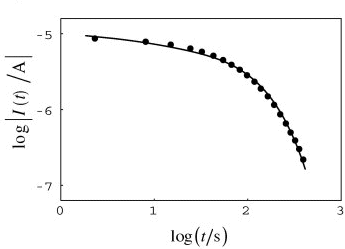Quote:
Originally Posted by cbearden

The Design temperature for my area is 20 F.
going back to my original heat load calc for my entire house,
that puts me at about 24000 btu/hr.
(7,235/24000) * 100 = 30%
I don't think this is bad for a first shot at this experiment. I'd definitely want to try to get another unit combined in with this before it's all said and done.
|
OK, this is very good. So now you have a well informed point from which to begin... You have a very good idea how much heat your house will lose on just about the coldest day of the year.
(NOTE: the rest of this post could go into whatever thread you choose for your loop field thread. When that thread comes available, I'll edit it into that thread.)
The paragraph below concerns the possibility of long term, trans-annual (newly-coined term) temperature decline.
The loop field ultimately gets its heat from the sun, but as I have learned, that heat can also come in the form of rain. You will withdraw heat in the winter, and heat will return in the summer. However, if your loop field is too small, so much will be withdrawn in the winter time that the summer weather will not provide full recovery to the ground where your loop field is installed. This would result in a slow, gradual lowering of the ground temperature. I have heard of cases like this already. So be mindful that your loop field is sufficiently large.
The rest of this post addresses annual heat loss & recovery...
So you you know how much HVAC derived heating capacity you will need to provide to replace that lose. As you probably know, in the HVAC world, bigger is not necessarily better. Slightly less than enough is best.
You also have the information you need, to estimate how big your loop field will need to be, in order to provide heat to your heat pump. In the case of the loop field, bigger IS better, and it is also more expensive to put in. Over the course of a winter, you'll be gradually drawing heat from your loop field, so the temperature of the loop field will be gradually declining. Along with this decline there is a small gradual reduction in efficiency of the heat pump.
If your loop field is too small, the decline of temperature would be greater and you could possibly come to a point that the water in your ground would freeze. When water freezes, there is a fairly large amount of heat that is released in the process of freezing. But after the water has frozen, the release of heat will decline because the specific heat of ice is about half the specific heat of water. Also, if the water is frozen, there will be no migration of ground water carrying more heat to to the loop field. At this point, the migration of ground heat into your loop field will be small, compared to it's pre-freeze state. Similar to the graph below:

If your loop field is over-sized, the rate of temperature decline will be lower, the rate of gradual efficiency reduction will be lower, and the likelihood of freezing the ground will be remote. However, is possible to build a loop field that is so big that the energy required to pump water through the field is no longer offset by any efficiency gains. This would be a very large loop field indeed!
The temperature of the ground in your location will be higher than it is where I live, and much higher than it is where Randen lives, in Canada. So you will need to do some local research to determine what the conventional wisdom is regarding the sizing of loop fields in your area. Specific advice that we might give you regarding the sizing of your loop field would not apply to your situation.
I would suggest calling some local GSHP outfits and asking them what is the usual size of a loop field for a 2-Ton heating load...
and then go bigger.
You'll also need to find out what the soil conditions are in your area. Is the ground in your area sandy? clay? gravel? cobbles? solid rock? This will tell you whether you should do trenches or boreholes. The GSHP folks will know something about this, but the well drillers know ALL the secrets. Ask around and find someone who has drilled close to you... they are worth their weight in gold.
-AC